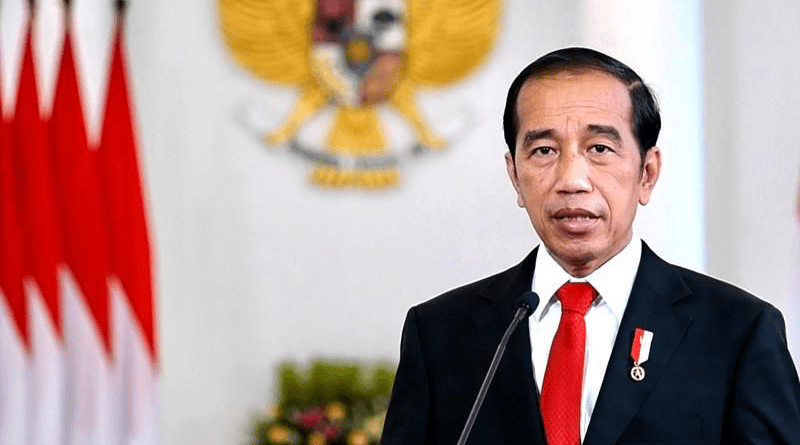Indonesian President Asks China To Accelerate Support For New Capital
By Nazarudin Latif
President Joko “Jokowi” Widodo asked China to speed up its investment in the construction of Indonesia’s new capital city as he met with top leaders in Beijing on Tuesday.
Jokowi held talks with Chinese President Xi Jinping and Premier Li Qiang in separate meetings during the second day of his three-day visit to Beijing, where China is hosting the third Belt and Road Forum for International Cooperation.
“President Jokowi asked for Premier Li Qiang’s support to accelerate the realization of China’s investment in the National Capital,” said a statement from the presidential office after Jokowi’s discussion with Li.
Jokowi aims to inaugurate Nusantara, the name of the new capital which Indonesia is building on Borneo island, before his term ends in October 2024. But his administration has encountered challenges in attracting foreign investors for this ambitious project, which comes with a hefty price tag estimated at U.S. $33 billion.
Li said China encouraged its enterprises to invest in Indonesia and was willing to cooperate in new areas such as the digital economy and green development, the state-run Xinhua news agency reported.
Earlier in the day, the Indonesian leader met with President Xi, who is hosting the forum to mark the 10th anniversary of China’s Belt and Road Initiative (BRI), Beijing’s program to build a modern-day Silk Road through a network of infrastructure projects connecting the Asian superpower with other continents and regions.
The Indonesian president, for his part, has promoted Nusantara as a necessary alternative to the highly populated Jakarta, which grapples with severe traffic congestion, air pollution, and the risk of sinking due to rising sea levels. However, his ambitious endeavor to construct a green and walkable city from the ground up has faced multiple setbacks.
Jokowi personally pitched the project to businessmen during his previous trips to China, Singapore, and Germany this year but has not secured any significant deals.
In March 2022, Japanese tech giant SoftBank withdrew its plans to invest in the project, with Investment Minister Bahlil Lahadalia later describing the offer as “unfair.”
The construction of the planned city, spanning an area of 990 square miles and marked by hilly landscapes and a natural bay, is expected to be completed by 2045.
‘Model cooperation’
During talks with Jokowi, Xi praised the cooperation between the two countries as a model for the Belt and Road Initiative, according to Xinhua.
Earlier this year, the two countries launched the Jakarta-Bandung high-speed railway, a key project of bilateral BRI cooperation, which will start its commercial operations on Wednesday. The railway has been offering free rides to the public since last month.
The project was financed by a loan from the China Development Bank, covering 75% of the cost, and equity from Indonesian and Chinese shareholders, covering the remaining 25%.
The railway project was initially billed at $6 billion, but an additional $1.2 billion was added to meet rising construction costs and land compensation.
Construction of the railway commenced in 2016 and was originally scheduled for completion by 2019.
Indonesia was one of the first countries to support China’s Belt and Road Initiative.
Under the BRI, the country has constructed power plants, industrial parks, ports, and bridges, some of which faced criticism from activists and local communities due to potential impacts on natural resources and concerns about rising debt from Chinese loans.
Bhima Yudhistira, executive director of the Center of Economic and Law Studies (CELIOS), said China’s financing in the past decade had focused on infrastructure projects.
“In Indonesia, there are still many projects that use large-scale coal-fired power plants, especially for nickel smelters,” he told BenarNews.
A report by CELIOS says 86% of China’s financing in Indonesia went to developing coal-fired power plants.
“Indonesia’s debt to China rose above $20 billion in 2022, and this figure will increase with the entry of other Belt and Road Initiative projects that have been signed,” he said.

